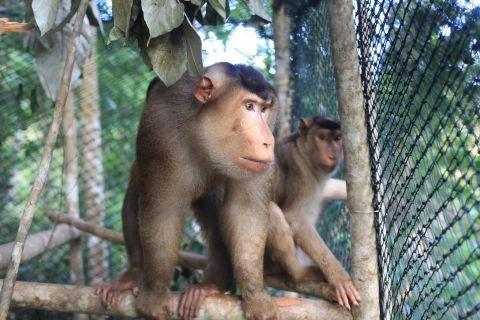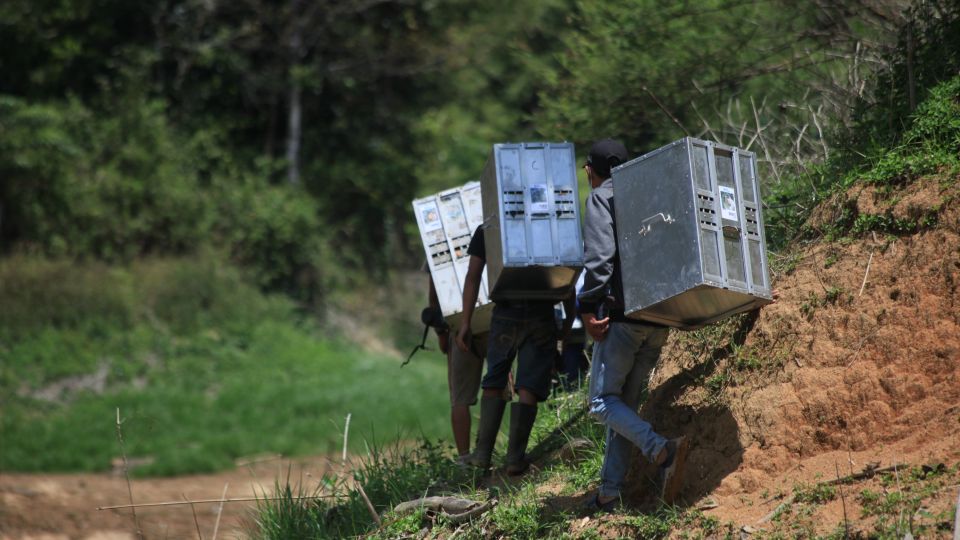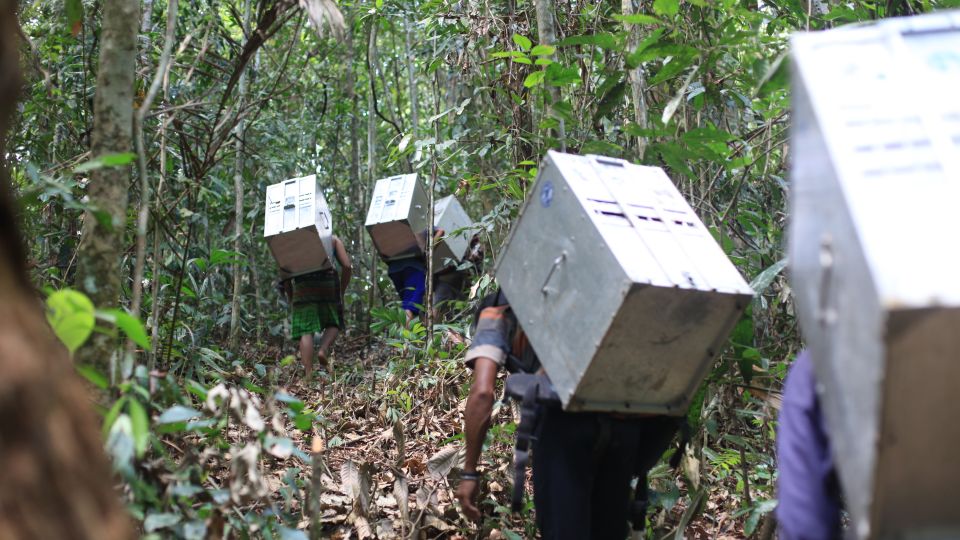
Twenty-four macaques rescued from captivity after being kept as people’s pets have been set free in Batutegi Protected Forest in the province of Lampung, Sumatra, Indonesia.
The monkeys consisted of 18 long-tailed macaques (macaca fascicularis) and six pig-tailed macaques (macaca nemestrina.)
During rehabilitation they had been socialised in four groups of long-tailed macaques, identified by Alpha males Awi, Andri, Robert and Raya, and two groups of pig-tailed macaques, led by Panji and Brahma.
The release was carried out on 23 October 2017 by our team in Indonesia, assisted by local residents in Batutegi.
The monkeys had previously been rescued after either being abandoned or surrendered by the general public. Some people no longer wanted the monkeys after the novelty of keeping them wore off, others found them too dangerous to keep once they were no longer small and easy to handle.

“These monkeys should not be used for entertainment or kept at home as pets,” said Imam Arifin, a member of our medical team. “They are wild animals that should be allowed to live in their natural habitat.”
Imam explained that the team worked hard to provide the monkeys with appropriate treatment and care in accordance with the principles of animal welfare. Once rescued, the macaques are first kept in quarantine at our Primate Rehabilitation Centre in Bogor, West Java, until veterinary checks confirm that each individual is free from diseases and in good health. Once the quarantine period is at an end, the macaques enter the rehabilitation stage, during which they are introduced to the foods they will find in the wild and encouraged to develop the natural behaviours they will need to survive. They are also socialised with others of their own kind – perhaps for the first time in their lives. Comprehensive behavioural data is gathered by our team of vets and keepers to monitor the primates’ progress and assess when they are ready for release.
The release of the macaques in the Batutegi Protected Forest Area of Lampung is part our rescue, rehabilitation and release programme to improve the welfare of former pet monkeys by returning them to their natural habitat. It is also to restore their ecological functions in the natural environment.

At the release site the macaques are first placed in habituation cages to adapt to their new surroundings. Then, after three days, they are removed from the habituation cage and released into the wild.
“Post-release, the team also keeps track of their movements in the wild and observes their behaviour to assess how well they have adapted to their new life,” explained Programme Manager Robithotul Huda.
He added that it requires considerable time and money to restore the wild nature and behaviour of macaques that have been kept as pets, particularly as they have often been kept like human beings. “Usually the monkeys have been close to humans for so long that they have lost the ability to behave like wild monkeys,” he concluded.
Hilmi Mubarok, Supervisor of Survey, Release and Monitoring, said that prior to the release operation his team had conducted a survey of habitat potential and availability of natural food at the release site. “The results showed that there are various types of plants that will provide suitable natural food for the released macaques,” he said.
In addition to being a conservation area which should ensure the safety of animals from human activities, Batutegi Protected Forest was also selected as a release site because of its diversity and the availability of a variety of trees that will provide food for the macaques.

